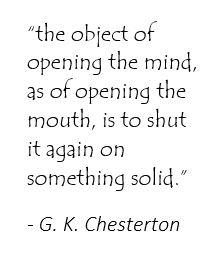 For Christians who are politically conservative, this year’s Presidential election presents a dilemma. As political conservatives, most in this group tend to vote Republican, since the Republican Party is more conservative than the Democratic Party. In the past, even when the Republican Presidential nominee has been a squishy moderate, they have still been a much better option than the Democratic nominee, so the choice has not been that difficult. This year, the Republican nominee is truly atrocious, forcing many to reconsider their approach to choosing between two less than ideal options.
For Christians who are politically conservative, this year’s Presidential election presents a dilemma. As political conservatives, most in this group tend to vote Republican, since the Republican Party is more conservative than the Democratic Party. In the past, even when the Republican Presidential nominee has been a squishy moderate, they have still been a much better option than the Democratic nominee, so the choice has not been that difficult. This year, the Republican nominee is truly atrocious, forcing many to reconsider their approach to choosing between two less than ideal options.
Some take the approach that “the lesser of two evils is still evil,” and refuse to vote for either major party candidate (either not voting at all, or voting for a third party). Those in this camp may be considered Idealists. Not only will they not vote for Donald Trump, they likely would not have voted for Mitt Romney, John McCain, George Bush (either W or HW), or Bob Dole. They will only vote for a candidate who substantially aligns with their vision of an ideal candidate, regardless of whether their preferred candidate has any possibility of winning the election. The stronger their idealism, the more closely aligned the candidate must be with their ideal, and the fewer potential candidates there are to select from.
The problem with Idealism is that no two people share the same set of ideals, so it actually becomes very individualistic. Although Christians must stand firm in their core principles, some of those principles include unity, submission, and humility, which means we must also be willing to prioritize which ideals are most important and seek compromise in other areas. While it is true that “the lesser of two evils is still evil,” Christians know that “There is no one who does good, not even one” (Rom. 3:12, Ps. 53:3), so demanding a candidate free from “evil” is basically saying that Christians should not vote at all. This is not to say that we shouldn’t bother to evaluate a candidate’s morality. To excuse a candidate’s moral failings based on the fact that there are “no perfect candidates” or that “every candidate is flawed” is just foolish.
To answer the idealist objection that “the lesser of two evils is still evil,” it can be countered that given a situation where the only options all have bad outcomes, it is morally right to seek the outcome that minimizes evil and maximizes good (even if the potential good is quite limited, it’s still better than the alternative). I think this is a valid principle, if applied properly. The problem I see, at least in the context of this year’s Presidential election and the rationale being used by Christians to justify support for Donald Trump, is that there seems to be little difference between this “greater good” principle and pragmatism.
The pragmatist does not ask, “what is right?” but instead asks, “what will have the better outcome?” The pragmatist does not evaluate the options themselves, but the perceived consequences of the options. Pragmatism as a guiding principle is not a biblical method of decision making. For one, it requires that we actually know the outcome in order to judge the right decision. But even if we do know the outcome, or even the likely outcome, the only person who really knows the ultimate greater good is God. God has said, “obedience is better than sacrifice” (1 Sam. 15:22). Righteousness defies logic (1 Cor. 1:18-31). We are to act with wisdom, and plan for the future, but determining outcomes is God’s business, not ours (James 4:14, Matt. 6:34).
If I were a pragmatist, I would vote for Donald Trump. The things that he says he will do (appoint judges who will uphold the Constitution, defend life, scale back government overreach) are on the whole, better than the things Hillary Clinton promises to do. Even assuming (as I do) that Trump will entirely renege on every promise he had made, the things he is likely to do might not be as bad (at least in the short term) as what Clinton will do. I don’t believe that Trump has any real core values other than self-promotion, but his opinions about what our country should do may align more closely with mine than do Clinton’s. As Doug Wilson has said, “I would rather fight Trump than to fight Hillary.”
But I am not a pragmatist. I am a “values voter.” Actually, although this label is generally applied to those on the Christian Right, everyone is a “values voter.” It’s just a matter of which values they prioritize. I prioritize virtue over political ideology. I prioritize truth and righteousness over Supreme Court vacancies, government regulations, and tax code. I do not believe that Donald Trump is any more virtuous, honest, or righteous than Hillary Clinton. Therefore, he is no more closely aligned with my values than is Clinton. Given the lack of difference between the two individuals, I am perfectly content to “throw my vote away” this year by writing in a third party candidate.
It would be different if we were simply voting for a Party. The Republican Party Platform is much more closely aligned with my values than the Democratic Party Platform. All else equal, I would much rather see a Republican in power than a Democrat. I plan to vote for Republican candidates in other races. If we were only voting for a party, I would gladly pull the lever for the Republican party. But we’re not voting for a party*, we’re voting for a candidate. And character matters too much for me to “hold my nose” and vote for Trump. Political policies hold no value if morality is simply cast aside. It saddens me to see those on the Christian Right valuing the political outcome of voting for Trump over the moral defeat of voting for a man so devoid of character.
(*You might argue that, in fact, we are voting for a party, and the electors of each party are the ones who then select the President. While that may technically be how the Electoral College works, for all practical purposes a vote for Trump is just that: a vote for Trump.)
 Some people put so much emphasis on principle #2 that they are unwilling or uninterested in debating the truth. But this has the effect of negating principle #1. If we stop short of finding the truth, or declare that the truth is unobtainable, then we are essentially saying that the truth is not necessary. To believe that the truth matters, is also to believe that the truth is something that can be grasped (not exhaustively, or in every situation, but in general; see principle #2), and is worth fighting for.
Some people put so much emphasis on principle #2 that they are unwilling or uninterested in debating the truth. But this has the effect of negating principle #1. If we stop short of finding the truth, or declare that the truth is unobtainable, then we are essentially saying that the truth is not necessary. To believe that the truth matters, is also to believe that the truth is something that can be grasped (not exhaustively, or in every situation, but in general; see principle #2), and is worth fighting for.

 For Christians who are politically conservative, this year’s Presidential election presents a dilemma. As political conservatives, most in this group tend to vote Republican, since the Republican Party is more conservative than the Democratic Party. In the past, even when the Republican Presidential nominee has been a squishy moderate, they have still been a much better option than the Democratic nominee, so the choice has not been that difficult. This year, the Republican nominee is truly atrocious, forcing many to reconsider their approach to choosing between two less than ideal options.
For Christians who are politically conservative, this year’s Presidential election presents a dilemma. As political conservatives, most in this group tend to vote Republican, since the Republican Party is more conservative than the Democratic Party. In the past, even when the Republican Presidential nominee has been a squishy moderate, they have still been a much better option than the Democratic nominee, so the choice has not been that difficult. This year, the Republican nominee is truly atrocious, forcing many to reconsider their approach to choosing between two less than ideal options.